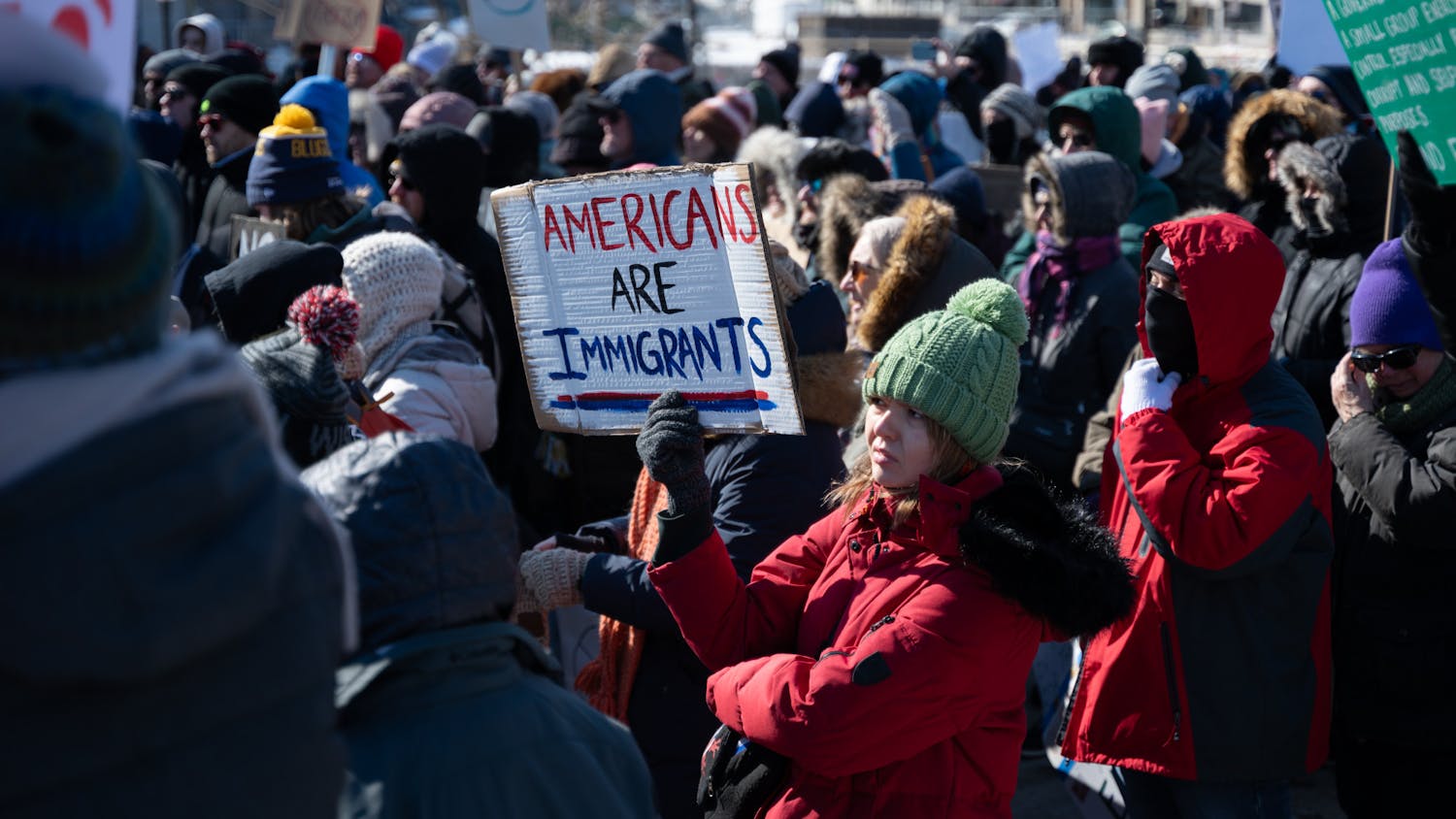The Associated Students of Madison passed legislation in support of transgender women in sports, revisions to their COVID-19 Student Relief Fund and the implementation of a Tribal Affairs position for their organization on Tuesday.
At their biweekly meeting, the student government voted unanimously to declare that all transgender people including trans women, trans men, non-binary people and others deserve to have their gender respected in all areas of public life including sports.
The legislation also declared ASM’s opposition to Wisconsin Assembly Bill 195 and Assembly Bill 196, bills most commonly known as the “Protecting Women in Sports Act,” which attempts to ban transgender girls and women from playing on women’s sports teams.
If Bill 195 passes through state legislation, ASM will demand that Wisconsin Gov. Tony Evers veto the bill.
“Attempting to keep up with all of the state legislation that is proposing new laws against trans individuals and trans youth is so exhausting and really emotionally draining,” UW-Madison student Lourdes Puig said to the open forum. “I say that as someone who is queer but under no circumstances knows anything about what it is like to be a trans person. I think it is important that any kind of support that is vocalized or provided for people who are trans is so monumental because there is not a lot of support.”
ASM also demanded that UW-Madison legally challenge the “Protecting Women in Sports Act” if passed through the state government.
Later in the meeting, after negotiations between ASM and UW-Madison officials, further additions and revisions were unanimously passed regarding their COVID-19 Student Relief Fund.
These revisions were focused on the role of the Mask Ambassador Committee Chair and the fund’s basis, consisting of $1.5 million from the ASM Reserve Board and $500,000 of unspent funds from the ASM Internal Budget, according to the legislation.
In the third unanimous vote of the night, in an effort to “understand the current issues affecting indigenous peoples on campus,” ASM passed legislation that recognized the importance of having a Tribal Affairs Liaison and put in place mechanisms to increase cooperation and collaboration between ASM and Tribal Affairs.
“I think that it is important to mention that Wunk Sheek’s house is being removed from campus and I think ASM should mobilize to do more in supporting their community,” UW-Madison student and District 8 alder candidate Ayomi Obuseh said in the open forum.
The legislation also encouraged student council members to attend and hold meetings with Indigenous groups on campus. Meetings with groups such as Wunk Sheek, Alpha Pi Omega and the American Indian Science and Engineering Society will help students better understand the current issues affecting indigenous peoples on campus.
“It is really important here especially when we see buildings such as Dejope championing parts of their culture but not allowing spaces to hear their stores,” Obuseh continued. “The stories are the way in which we continue to value the diversity within the community as well as acknowledge the fact that we are on stolen land.”
The final piece of legislation, declaring ASM’s support and their commitment to stand in solidarity with the Teaching Assistant's Association, also passed unanimously.
The TAA’s efforts to gain segregated fee remission for UW-Madison graduate workers were also supported by ASM in the proposal.
“I believe that no worker should have to pay back their wages to their employer on principle,” said Stephen Dennison, a graduate student and member of the TAA, in the open forum. “Also I think that particularly how important graduate students are to the university teaching, doing research, working on project assistant shifts, sometimes even acting as faculty members and as full-time instructors for courses, they should not have to pay back a tax to be an employee.”
Teaching assistants have also been asked to step up and lead classes when their professors are on a mandated furlough — a move the University made to decrease their financial deficits — which adds to their workload and responsibilities.
Although the TAA has pushed for an end to their responsibility to pay segregated fees, the $734.30 in fees are due on April 2.
The next ASM meeting will be held on Tuesday, April 13.






